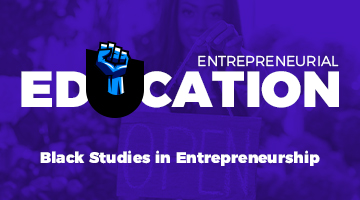Like many parents around this time, I too have a 17 year-old son who is about to be heading off to college. Since he was in the 9th grade I have been asking him if he would like to attend an HBCU (Historical Black Colleges and University). His answer then, and still remains, “No.” When I ask why, he stated that he doesn’t believe an HBCU will give him a true picture of the real world. He went on to say that the majority of America is not black, and though he has interest in the black progression, he remains adamant that an HBCU won’t prepare him for what’s real out there.
I sat and thought about his comments for quite some time. He is a very intelligent young man with a lot of inherited radicalism in his blood. However, I always encourage my children to run towards their true mission with passion. I tell them that God sent each of us here with an individual purpose that may be totally antithesis to those of even their siblings. So I don’t push him where I “feel” he should go.
Instead, I internalize. I objectively look at his opinions and the facts. The facts are HBCUs have been around for over 100 years and were created to give disenfranchised blacks a place to obtain higher learning that would prepare them for the challenges the state of the country, then, (Jim Crow & Reconstruction) posed. It worked. HBCUs developed some of the most brilliant minds and pumped out some of the most courageous Black Americans and made progressive differences in the black community.
But what about now? Is that still happening? Have they lost their zeal by not following the “Who Moved My Cheese?” mantra? Today, how is a black HBCU graduate any different from a black non-HBCU graduate, mentally, strategically and methodically? What actions are expected to be taken that’s different? I am speculating because I don’t have all the facts. So I humbly ask someone to help me communicate this to my son. Here are some statistics that the United Negro College Fund produced:
· Over half of all African American professionals are graduates of HBCUs.
· Nine of the top ten colleges that graduate the most African Americans who go on to earn Ph.D.s are HBCU graduates.
· More than 50% of the nation’s African American public school teachers and 70% of African American dentists earned degrees at HBCUs.
· UNCF members Spelman College and Bennett College produce over half of the nation’s African American female doctorates in all science fields.
However, are these acceptable successes? Is working for government, corporations or becoming professionals who rarely work to elevate current disenfranchised blacks considered a success? 100 years ago, simply being anyone who served in these roles would’ve been seen as inspiration for blacks and acceptably a success. But in the 21st century, other cultures have adapted, the market has changed and our country has developed in ways that seem like night and day compared to the early 20th century so are the designs of our HBCUs serving today’s needs?
Does schools like Spelman College, who was founded by John Rockefeller and named after his wife Spelman have relevance to the Black community or are we being undermined? My son has an interest in becoming an enormously successful entrepreneur who has an impact on the world. Just the mere fact that HBCUs took so long to begin offering online courses made my son feel like these black schools are lagging behind the power curve; though he’s not trying to attend school online but he is just not trying to lag behind too.
Blacks athletes dominate in the NFL and NBA, yet players like Reggie Bush and Dwyane Wade elected not to attend an HBCU. So are they also saying that their chances of success is reduced by attending these schools too? I can only assume that an HBCU should be the mental factory and athletic warehouse for these future professional athletes. Are we not doing a good enough job in our athletic programs, which, by the way, could generate hundreds of millions for athletic departments collectively, recruiting (or at least look appealing) to these students while they are in high school?
Are we too emotionally charged and attached to the schools so we justify the activities rather than demanding innovation? Is it just about job security and historical preservation or is it also about the future preservation of blacks? Are we too sensitive to even have a discussion over where we go wrong for everyone at-large? I root for HBCUs. I appreciate the rich history they provide and the overall progress they’ve made for black people over the past 100 years. But I also feel we shouldn’t rest on our laurels. I write heavily in my book “Rebuilding the Black Infrastructure” that we must be more substantive than we are symbolic. I know this op-ed may ruffle the feathers of some proud HBCU graduates. But at the end of the day, are we here to serve our emotions or serve our community? So help me. What words should I offer to him? Cause I know the longer we delay recognizing our problems, the longer we delay solving them.






Comments are closed.